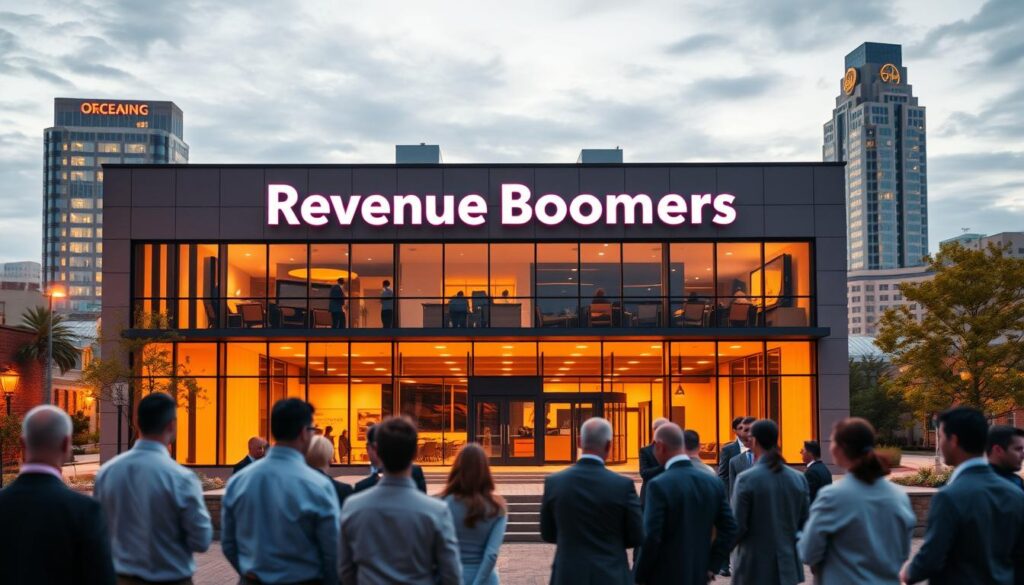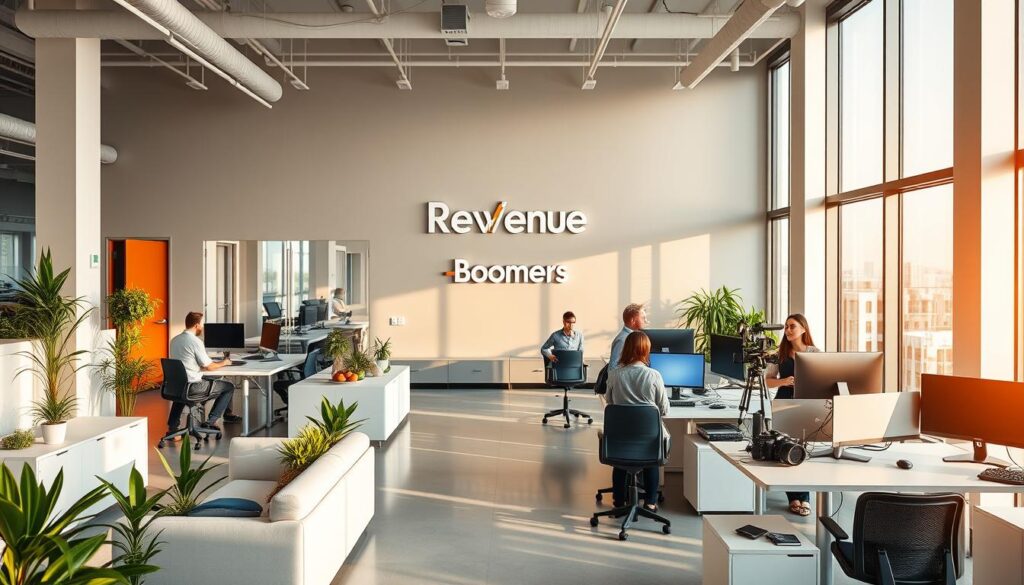Introduction
For small businesses, being found online is critical to attracting customers, competing with larger companies, and building a loyal client base. With limited resources, small businesses need cost-effective strategies that drive results. Search engine optimization (SEO) is one of the best ways to achieve these goals, offering long-term visibility and a steady flow of high-quality leads. This blog outlines the best SEO strategies tailored for small businesses to help them succeed online. Schedule a free SEO consultation with Revenue Boomers to learn how our tailored SEO services can help grow your small business.
Table of Contents
- Best SEO for Small Businesses
- Why SEO is Important for Small Businesses
- Key Benefits of SEO for Small Companies
- Best SEO Strategies for Small Businesses
- Keyword Research for Small Business SEO
- Local SEO to Attract Nearby Customers
- Content Marketing to Build Authority
- On-Page SEO Essentials
- Technical SEO and Site Optimization
- Overcoming Common SEO Challenges for Small Businesses
- FAQs
- Professional Small Business SEO Services Near Me
Why SEO Is Important For Small Businesses
Small businesses often rely on local customers and need to reach their target audience without a huge marketing budget. SEO is essential for small businesses because it levels the playing field, enabling them to compete with larger brands by appearing in search results for relevant keywords. Whether it’s a local coffee shop or a home repair business, SEO helps small companies reach more potential customers, drive traffic to their website, and increase revenue over time.
Key Benefits Of SEO For Small Companies
1. Increased Online Visibility for Small Businesses
SEO increases a small business’s visibility in search engine results, making it easier for customers to find them. With local SEO, small businesses can reach nearby customers searching for services or products, helping them capture local traffic and boost foot traffic to physical locations.
2. Cost-Effective Marketing
SEO is a cost-effective marketing strategy that offers long-term benefits. Once a website ranks for relevant keywords, it can continue attracting traffic organically without the ongoing expense of paid ads. This makes SEO a valuable investment for small businesses with limited marketing budgets.
3. Building Trust and Credibility
Appearing in the top search results establishes a small business as a trusted, reputable option. When potential customers see your business at the top of search results, they’re more likely to trust your brand, which can increase conversions and customer loyalty.
4. Better User Experience
SEO often includes optimizing a website for better usability, such as improving load times, enhancing mobile responsiveness, and ensuring easy navigation. These enhancements lead to a better user experience, which keeps visitors engaged and encourages them to return to your site.
Best SEO Strategies For Small Businesses
Keyword Research for Small Business SEO
Keyword research is the foundation of any successful SEO strategy. Small businesses should focus on finding specific, high-intent keywords that align with their services. For example, a local bakery might target “fresh pastries near me” or “custom cakes in [City].” Use these keywords in your website’s content, headings, and metadata to improve your chances of ranking for terms that potential customers are searching for.
Local SEO to Attract Nearby Customers
Local SEO is one of the most effective strategies for small businesses to reach customers in their area. Set up and optimize your Google My Business profile, include accurate contact information, business hours, and photos. Encourage happy customers to leave reviews, as positive feedback helps improve your visibility in local search results, attracting more clients.
Content Marketing to Build Authority
Content marketing is a powerful tool to attract organic traffic and engage potential customers. By creating blog posts, guides, and how-to articles relevant to your industry, you can rank for informational queries that attract potential customers. Examples include a plumbing company writing about “how to fix a leaky faucet” or a bakery sharing recipes or baking tips. Content marketing builds trust and positions your small business as an expert in its field.
On-Page SEO Essentials
On-page SEO focuses on optimizing individual pages for search engines and users. Key on-page elements to optimize include:
- Title Tags and Meta Descriptions: Include target keywords to improve click-through rates from search results.
- Headers (H1, H2, etc.): Use clear, descriptive headers to organize content and include relevant keywords.
- Alt Text for Images: Describe your images using keywords, which helps with both accessibility and SEO.
- Internal Links: Link to other pages within your site to help users and search engines navigate and understand your content.
Technical SEO and Site Optimization
Technical SEO ensures that your website is accessible, secure, and optimized for performance. Key aspects of technical SEO include:
- Mobile-Friendliness: Make sure your site is responsive so it displays well on both desktop and mobile devices.
- Page Speed: A fast website keeps visitors engaged and improves rankings.
- Secure HTTPS Protocol: HTTPS signals that your website is secure, building trust with users and potentially boosting your rankings.
Optimizing these technical elements creates a smoother user experience and helps your website perform better in search engine rankings.
Overcoming Common SEO Challenges for Small Businesses
Small businesses often face challenges in building backlinks, keeping up with SEO trends, and competing with larger companies in their niche. Focus on building a strong local presence through local directories, collaborating with local influencers, and maintaining a Google My Business profile to attract relevant traffic. It’s also helpful to use analytics tools to track SEO performance and make adjustments as needed.
FAQs About Best SEO Tips For Small Businesses
Why Is SEO Important for Small Businesses?
SEO helps small businesses reach a broader audience, attract local customers, and increase visibility in search results. It provides a cost-effective way to generate leads and build brand awareness.
What Are the Best Keywords for Small Business SEO?
Small businesses should focus on specific, high-intent keywords that reflect their services, such as “affordable landscaping in [City]” or “local bakery near me.” These keywords attract customers looking for local options.
How Does Content Marketing Benefit Small Businesses?
Content marketing helps small businesses attract traffic by providing valuable information. By answering questions and sharing tips, small businesses can establish authority and build trust with potential customers.
How Does Link Building Help Small Business SEO?
Link building boosts a site’s authority by earning backlinks from reputable sources. Links from local directories, community websites, and industry blogs enhance credibility and improve search engine rankings.
Is SEO Worth the Investment for Small Businesses?
Yes, SEO offers long-term benefits by attracting high-quality traffic and improving visibility. Unlike paid ads, SEO provides sustainable results, making it a valuable investment for small businesses.
Professional SEO Services for Small Businesses Near Me
For small businesses looking to grow their customer base and increase online visibility, SEO is an essential strategy. From local SEO to content marketing, Revenue Boomers can help your business succeed online. Explore our SEO services for small businesses to discover how we can help your company thrive.






